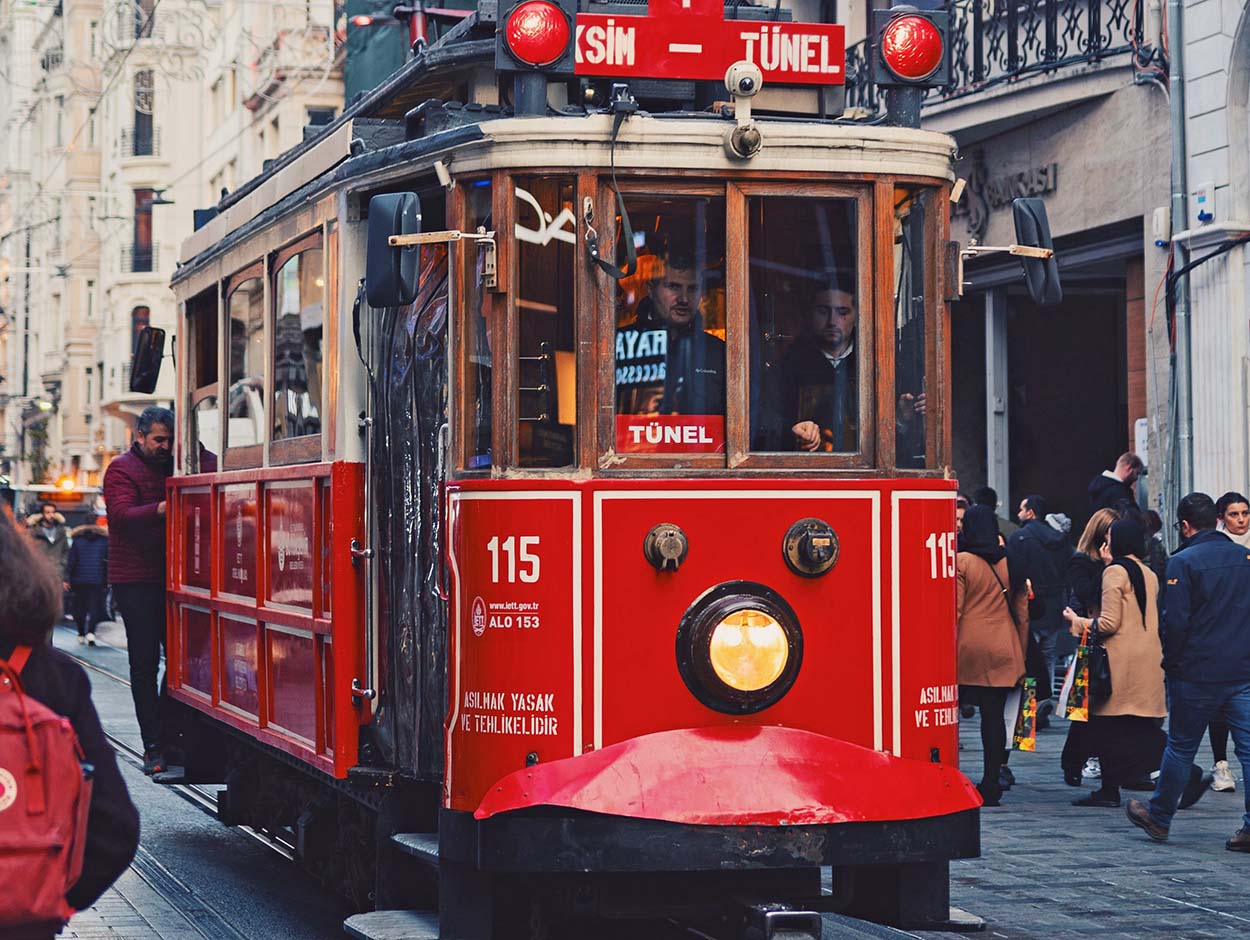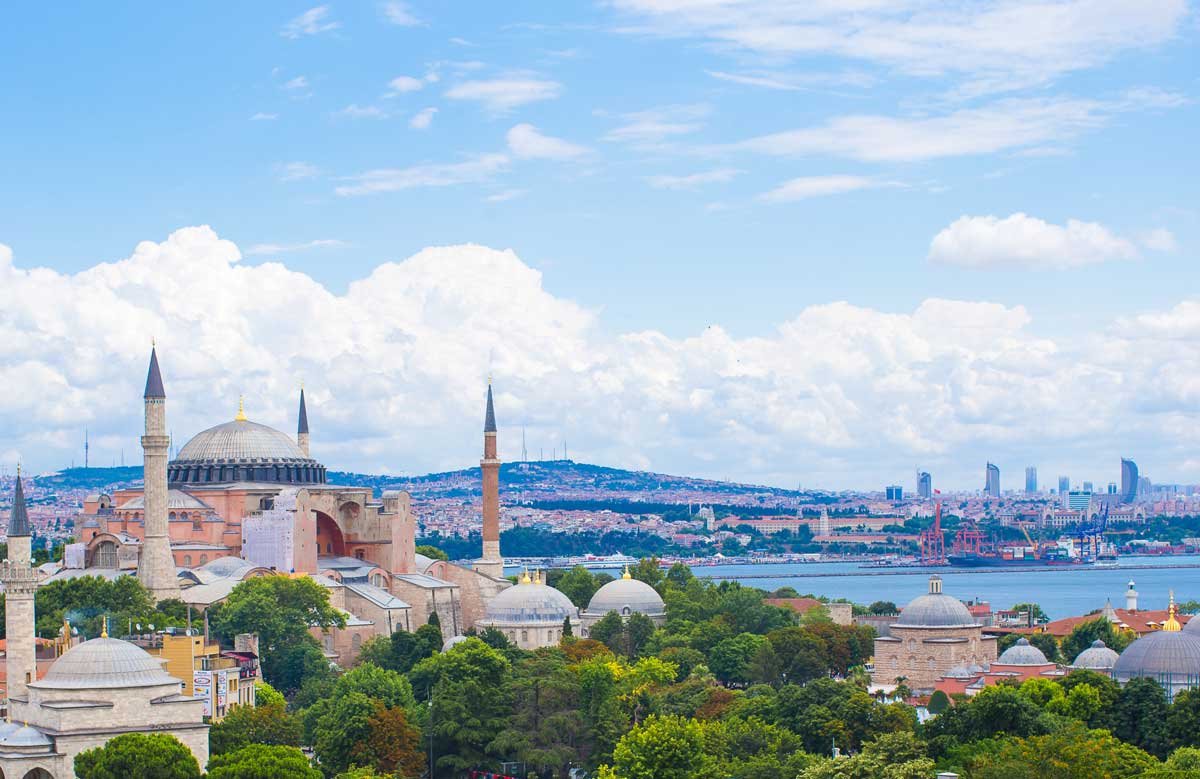Turkish is the official language in Turkey. The extent to which English is spoken as a second language in Turkey differs from place to place. In major tourist cities such as Istanbul, Antalya, Bodrum and Izmir, English is commonly used and comprehended by many, but often to a limited extent.
In rural parts of Turkey, the usage of English is less common, likely due to fewer opportunities for regular interaction with English speakers.
How much English is spoken in Istanbul?
As one of the world’s most popular tourist destinations, Istanbul offers a unique blend of East and West.
It’s a city where you can explore ancient ruins in the morning and sip Turkish coffee at a trendy café in the afternoon. The city is divided into two parts by Bosphorus Strait; one part lies in Asia while the other one which includes most places that tourists visit – Hagia Sophia or Topkapi Palace – is located Europe.
But how do foreigners who speak only English manage navigating around the city?
Key takeaways
If your going to visit Turkey as an English speaker, we think you’ll find Istanbul is a friendly city. Locals are used to foreigners and are patient and understanding when it comes to dealing with communication issues.
While English is spoken widely in popular tourist areas like Sultanahmet and Taksim, there are still areas where it might be a challenge to find someone who speaks it. Many Turks are eager to communicate with visitors, but may not always be comfortable communicating in English.
Mobile translation apps and other resources are helpful tools for English speakers visiting Istanbul and Turkey.
Can I get around just knowing English in Turkey?
English is taught in schools in Turkey, but not everyone may be proficient in speaking. We have observed that many locals can speak some English, although their vocabulary is often limited to their specific work domains, such as restaurants or shopping.
Many locals working in hotels, restaurants and shops speak English fluently or have basic knowledge to communicate with foreigners. Museums and other tourist attractions offer tours or information sessions in English. Some street signs are also written in both Turkish and English which makes it easier for tourists to navigate around the city.
Despite these efforts, there may still be some potential language barriers for non-Turkish speakers who venture off-the-beaten-path or who interact with less experienced locals outside of touristic areas.
Overall though, there’s no need for visitors who only speak English to worry about communication issues while visiting Turkey, especially Istanbul, as they will find plenty of resources available that cater specifically towards them.
Tips for navigating the language barrier in Turkey
While it is true that many locals speak some level of English, knowing basic Turkish phrases can still be incredibly helpful when traveling around Istanbul. Locals will appreciate any effort made to speak their language – even if it’s just simple greetings such as “Merhaba” (hello) or “Teşekkür ederim” (thank you).
Being able to read street signs and make out common food items on menus written only in Turkish can make travelling through parts of Istanbul much easier.
You can learn some common words in Turkish by downloading a language learning mobile app. Or even simpler by finding a YouTube video on basic Turkish language.
When facing a situation where no one speaks any English, make use of translation apps like Google Translate or Translate (Apple’s iPhone app) which can translate words and phrases on demand. These apps can be especially useful with their conversation modes for translating a converstation back and forth. They also both include a photo scanner mode where you can point the camera at Turkish words and it translates the written content in the picture into English.
It’s important to make sure you have a sim card and mobile service in Turkey otherwise these apps won’t work when you’re out and about.
Helpful tip
We’ve used Google Translate for things like asking a store owner about our local sim card plan and checking we were buying shampoo and not conditioner from the store. Just be aware that these things are not always 100% accurate.
Cultural differences that may impact communication
One of the most fascinating aspects of visiting Istanbul is the opportunity to immerse oneself in a rich and diverse culture that is vastly different from what many visitors may be used to. However, as is often the case when cultures collide, there are certain differences and nuances that can impact communication between individuals from different backgrounds.
For example, it’s important to keep in mind that Turkish culture places a high value on hospitality and politeness. Visitors should be prepared for locals to go out of their way to make them feel welcome, and should reciprocate this friendliness whenever possible.
Another cultural difference that can impact communication is body language. Turks tend to use more physical touch when communicating than people from some other cultures might be used to. This could include handshakes or hugs, which don’t necessarily have any romantic connotations in Turkish culture.
It’s helpful to be aware of cultural differences even if the person you are relating to speaks English.
Resources for Non-Turkish speakers
Tour Guides
Hiring a tour guide can be one of the best investments you make during your trip to Istanbul. Not only will they provide valuable insights into the city’s history and culture, but they can also help bridge any language gaps. Many tour guides speak English fluently, and some even offer services in other languages like Spanish or French.
When choosing a tour guide, do your research beforehand. Look for reviews on travel websites or ask for recommendations from your hotel concierge. Make sure to communicate any specific interests or needs you have so that your guide can customize the tour accordingly.
Language Classes
If you plan on spending an extended amount of time in Turkey or just want to learn more about the language and culture, taking Turkish language classes can be a great option. There are many language schools throughout Istanbul that cater specifically to foreigners who want to learn Turkish. Some even offer intensive courses that can help you become conversant in just a few weeks.
In addition to traditional classroom settings, there are also online language classes and mobile apps like Duolingo or Babbel that can provide basic knowledge before traveling to Turkey.
Recommendations for visitors
So what should you do if you’re planning on visiting Turkey but don’t speak Turkish?
- Learning basic Turkish phrases
- Use translation apps like Google Translate or Apple Translate
- Make use of tour guides and language classes
All in all, while the language barrier in Turkey might seem daunting at first glance, remember that there are thousands of English-only speakers traveling there each year – it’s a big, fun, friendly place.
By being open-minded and willing to try new things – including embracing any embarrassing mistakes – you’ll likely have an unforgettable experience in this vibrant country.

I’m a writer and graphic designer currently living in Turkey with my family. I enjoy learning language, great food (chicken kebab is a favourite at the moment) and experiencing places less-traveled.




